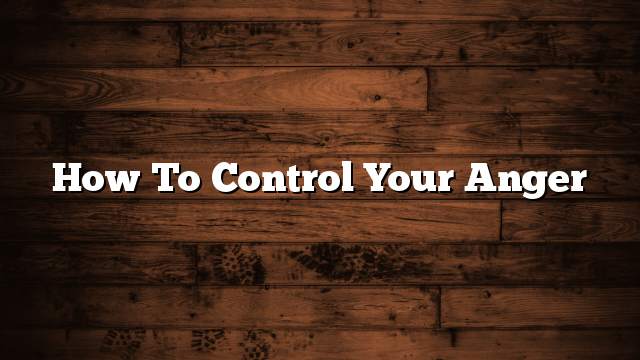Relax
Simple relaxation tools can help calm anger, and there are many books and courses that teach relaxation techniques, and steps you can try:
- Breathing deeply from the diaphragm.
- Repeat a certain word, such as relaxation, or rest.
- Imagine a certain relaxed state, such as yoga time.
- Repeat these steps daily, so you will usually become automatic in the event of tension.
Exercise
Physical activity helps to reduce stress caused by anger, thanks to the endorphins produced by the body during exercise, so it is recommended to run, ride a bike, swim, boxing, or dance. It is also recommended to schedule a schedule of exercises to regulate emotions in general.
Expressing opinion after calm
After the anger and the calmness of the mind go away, anger and frustration can be expressed in a firm and direct manner, but without hurting the feelings of others or trying to control their opinions. There are some things that must be taken into account during the expression of opinion:
- respecting others: The relationship should remain a priority, and maintaining the relationship is better than success.
- Focus on the Present: It is easy to go back to the past and mention its grievances, but it is better to focus on the current situation and what can be done to solve the problems.
- Al-Salih: A successful discussion can not be achieved if there is no desire for forgiveness or forgiveness.
Results of anger
To get out of control for negative results control, including:
- Harm to physical health: High levels of stress increase the risk of heart disease, diabetes, immune weakness, and insomnia.
- Harm to Professional Life: The anger alienates coworkers, customers, and diminishes their respect.
- Damage to mental health: Stress causes stress, depression, as it consumes a large amount of mental energy, making it difficult to concentrate.
- Harm to social relations: The anger reduces the trust of others, their respect, and causes them psychological wounds.
